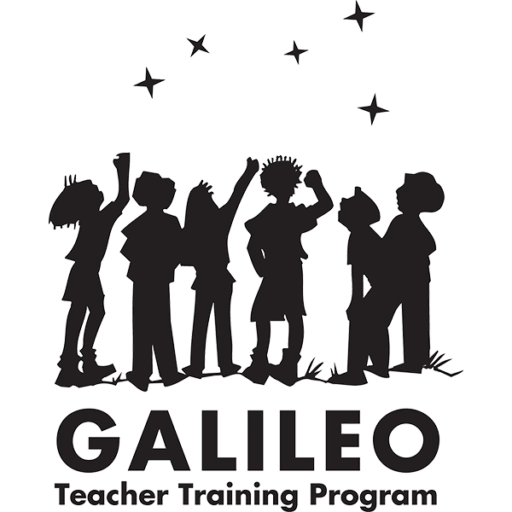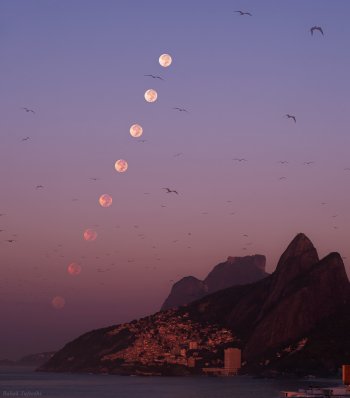We are announcing 4 new Comenius and Gruntvig training events
The first two events dates are already for the next call for application with deadline Januray 16th
Mysterious Skies – Astronomy and Astro-Art (in partnership with TWAN)
Bridges – Bridging the skies, the earth and the human beings
The following two have are taking place only during the next school year and the deadline will be April 30th.
Universe Quest – Building Games for Education (in partnership with Learnit3D)
Astronomy@MyBackPack.
In order to participate in these training events you need to fill the pre-registration form. We will send you a certificate or your pre-registration. With this document you have to apply to your national Comenius and Gruntvig Agency (http://ec.europa.eu/education/programmes/llp/national_en.html). If you succeed in your application you have to let us know (geral@nuclio.pt) or (info@galileoteachers.org) as soon as possible in order to confirm your participation and give you further information related to the course payment and other practical details.If you register your interest but don’t proceed with your full registration you have also to inform us so that we open your place to other participants that might be interested in the event.
_______________________________
More information about the courses:
© Babak Tafreshi (TWAN)*
Mysterious Skies – Astronomy and Astro-Art – A training event promoted in partnership with TWAN (The World at Night – http://www.twanight.org )
Course Reference Number – PT-2012-078-002
http://ec.europa.eu/education/trainingdatabase/index.cfm?fuseaction=DisplayCourse&cid=32210
Date: July 24th to 29th , 2012
Location: Portugal – Centro de Interpretação Ambiental da Pedra do Sal em São Pedro do Estoril and Planetário Calouste Gulbenkian (Lisbon)
This training event was prepared for an audience with interest in new methodologies to address science and science related topics in school and science centres using as a guideline: Astronomy, Astrophotography and Art, especially in the artistically view of the heavens.
The logic followed in the preparation of the programme was to provide an introduction on new methodologies to teach this immense and fast growing field. The idea is to provide a hands-on experience to tools and resources that are designed to promote the learning by doing approach. The programme is designed to provide adult trainers, teachers and science center staff with an immersive experience in the use of RBSE (Research Based Science Education). Items in the programme have been successfully experimented by educators in various countries and environments.
The resources are introduced, having as a starting point the traditional lessons, as bridges to reach an inquiry based construction of knowledge using digital and non-digital technological materials. Educators will learn how to customize and adapt the resources for their target audience and to address different parts of the school curricula by using such methods, an approach that is much more close to the real world of science than the traditional science teaching methodology.
This training course aims to give to the participants a deeper understanding of the power of these modern tools that allow a completely different approach for science teaching. Participants will be able to incorporate this methodology in their regular classroom teachings.
The team of educators for this training event was carefully selected to address the different topics in a deep but also pedagogical approach. The design of the programme includes lectures followed by theoretical practical sessions and practical sessions where the participants will have the opportunity to hear about modern knowledge and challenges involved in each area of expertise. Field trips to visit a planetarium, historical places and to observe the night sky are also contemplated in the training. The approach that will be used in this training was successfully implemented in several education venues promoted by TWAN (http://www.twanight.org), the Dark Skies Awareness educational programme and the Galieo Teacher Training Programme (www.galileoteachers.org).
_____________________________
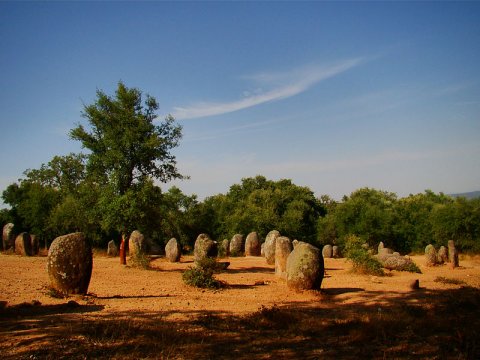
Bridges – Bridging the skies, the earth and the human beings
Course Reference Number –PT-2012-075-001
http://ec.europa.eu/education/trainingdatabase/index.cfm?fuseaction=DisplayCourse&cid=32229
Date: Jun 25th to 29th , 2012
Location: Portugal – Centro de Interpretação Ambiental da Pedra do Sal em São Pedro do Estoril and Évora (Cromeleque de Almendre)
The main objective of this training event is to introduce educators in an Inquiry based and research based science education methodology by using ancient archeoastronomical sites as a motivation. The methodological approach used in this session mixes outdoor spaces to support inquiry based learning not only in a familiar school environment but in exciting landscapes involving modern (the cities or the villages themselves), ancient monuments (archaeological, historical-artistic and ethnohistorical sites) and folklore traditions (f.e. sowing during full moon). This course will provide the tools to engage students into discovering that the world outside school offers a versatile learning and teaching environment, making the skills and knowledge acquired, automatically relevant to the their everyday experience. The Training Event will involve:
On site exploration – Natural, rural and urban landscapes, sites of archaeological, historical-artistic and ethnohistorical interest
School Reproduction/Laboratory – Reproduce a monument in the school, construction and use of simply low-cost tools, use of the hands, eyes and body in teaching-learning processes (applicable on maths, geometry, astronomy to an archaeological/historical/artistic/philosophical concept),
Bridging to Digital content – Use digital tools (whenever possible) to support the virtual construction of a reproduction, to view different ancient traditions in the skies (ex. different asterisms and mythological pictures with Stellarium), to review celestial bodies movements, to support field trips and the historical-philosophical importance of the connection between skies and terrestrial monuments for our ancestors.
The team of educators for this training event was carefully selected to address the different topics in a deep but also pedagogical approach. The design of the programme includes lectures followed by theoretical practical sessions and practical sessions where the participants will have the opportunity to hear about modern knowledge and challenges involved in each area of expertise. Field trips to historical places and to observe the night sky are also contemplated in the training.
This project counts with the collaboration of several experts in the field of archeoastronomy and digital contents for education besides astronomers, geologers and biologers.
_____________________________
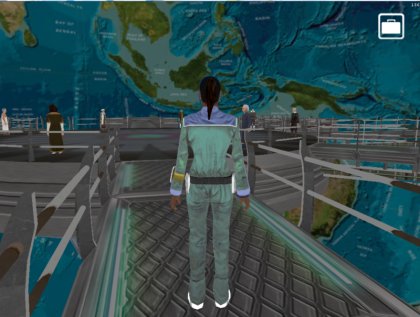
Universe Quest – Building Games for Education – A training event promoted in partnership with Learnit3D (http://www.learnit3d.com/)
Course Reverence Number – PT-2012-076-001
http://ec.europa.eu/education/trainingdatabase/index.cfm?fuseaction=DisplayCourse&cid=32209
Date: Oct 29th to November 2nd , 2012
Location: Portugal – Centro de Interpretação Ambiental da Pedra do Sal em São Pedro do Estoril
This training event was prepared for an adult audience with interest in new methodologies to address science and science related topics using as a guideline: Educational Games, Scientific Illustration and Astronomy. Games for education are considered nowadays one of the Holy Grail for engaging students and inspiring them in science topics. ICT and games are part of their daily lives and its pedagogical capability is overwhelming. The main objective of this training is to prepare adult trainers in the use of serious games for education and to provide practical examples of its power for addressing real data handling (Research Based Science Education) while promoting the learning of different science topics in a learn by doing approach.
The team of educators for this training event was carefully selected to address the different topics in a deep but also pedagogical approach. The design of the programme includes lectures followed by theoretical practical sessions and practical sessions where the participants will have the opportunity to hear about modern knowledge and challenges involved in each area of expertise. Field trips to visit a planetarium, historical places and to observe the night sky are also contemplated in the training. The approach that will be used in this training was successfully implemented in several education venues promoted by University of California at Berkeley, Learnit 3D (experts in games for education) and the Galileo Teacher Training Programme.
_________________________________
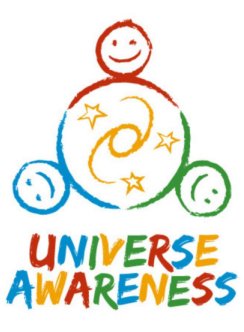
Astronomy@MyBackPack
Course Reverence Number – PT-2012-077-001
http://ec.europa.eu/education/trainingdatabase/index.cfm?fuseaction=DisplayCourse&cid=27622
Date: Sept 10th to 15th , 2012
Location: Portugal – Centro de Interpretação Ambiental da Pedra do Sal em São Pedro do Estoril
The main objective of this programme is to introduce educators in the use of new methodologies for science teaching based in the use o modern tools and resources that rely on recent advances of science. This training event was prepared for an adult audience with interest in new methodologies to address science and science related topics using as a guideline real research examples, namely in the field of Astronomy and Space Research.
The advent of free science content on the web opened a whole new area for science education. Students can now learn mathematics, physics, geography, chemistry and other subjects while using real astronomy and space data, available for free on the internet. Participants will be introduced to an efficiently and well tested methodology that relies on the use of such resources to tackle school curriculum content. The programme is built to address the needs of schools ranging from easy access to computers and internet to those still not reached by these devices. The methodology is based in an IBSE approach and range from the manipulation of databases to the construction of observing devices using readily available material. This training curriculum can also be used as a tool to bridge the digital divide enabling a graceful transition from paper technology to digital format. The material was carefully chosen for their flexibility to be applied in different levels of difficulty and age. This training event is a partnership between GTTP and Universe Awareness (www.unawe.org), a programme devote to inspire young children for the beauty of the Universe.
The team of educators for this training event was carefully selected to address the different topics in a deep but also pedagogical approach. The design of the programme includes lectures followed by theoretical practical sessions and practical sessions where the participants will have the opportunity to hear about modern knowledge and challenges involved in each area of expertise. Field trips to visit a planetarium, historical places and to observe the night sky are also contemplated in the training. The approach that will be used in this training was successfully implemented in several education venues promoted in Portugal under the scope of the Universe Awareness Programme.
* TWAN is a project of Astronomers Without Borders (www.astrowb.org).
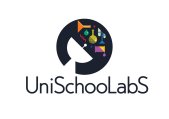 These training events are a partnership between NUCLIO, GTTP and UniSchooLabS (http://unischoolabs.eun.org/web/unischoolabs), a programme aimed to improve the quality of science education in Europe
These training events are a partnership between NUCLIO, GTTP and UniSchooLabS (http://unischoolabs.eun.org/web/unischoolabs), a programme aimed to improve the quality of science education in Europe
